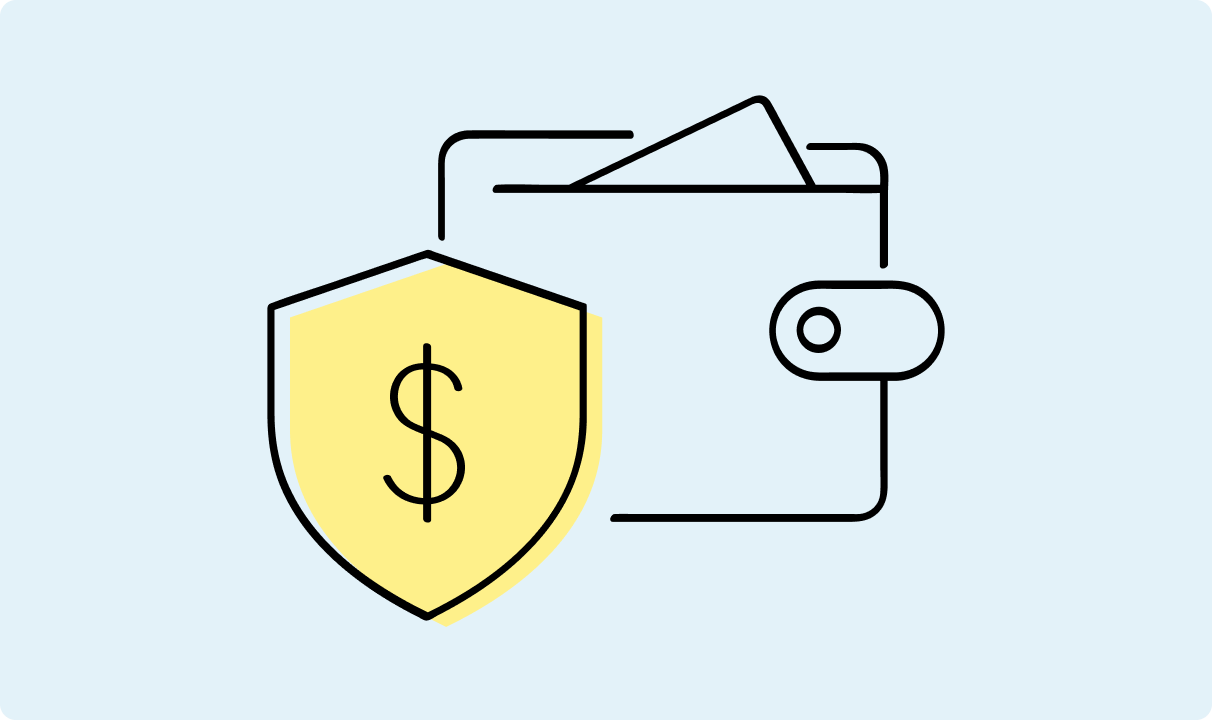How Much Does a VPN Cost in 2025 & How to Save More
Key takeaways:
- VPN prices vary based on the subscription length, but can cost as low as $1.89 per month.
- Free VPNs are unreliable in their performance and create various security and privacy risks.
- VPN prices often cover unessential features, but you can save by choosing a long-term plan with an affordable provider like CometVPN.

Rasa Sosnovskytė
4 min read

A Virtual Private Network (VPN) subscription is cheaper than you might think. While there are plans costing well over thirty dollars per month, you can find budget-friendly VPN deals for under two. VPN service plans vary between providers, but the first thing to look for is almost always the subscription length.
Average VPN Prices by Subscription Length
As with many other services, creating an affordable VPN app is much easier when providers have a stable demand. Economies of scale dictate that as demand increases, the unit price decreases. It's the main reason why VPN users opting for longer plans always get better deals.
All major VPN providers give staggering discounts for longer periods. Most of them even list a year or longer subscriptions as the default option, with 50%, 60%, or, in the case of CometVPN, 81% savings.
- The average VPN price for 24 months is $70.60, or $2.69 per month.
- The average VPN price for 12 months is $52.89, or $3.53 per month.
- The average VPN price for a one-month subscription is $12.08.
The price averages are based on the top five VPN providers and aren't representative of the whole VPN market. Yet, it should give you an idea of what VPN prices to expect. Find a more detailed comparison table below.
VPN Cost Comparison Table
VPN Provider | 1-Month Cost | 1-Year Cost (Total) | 1-Year Cost (per month) | 2-Year Cost (Total) | 2-Year Cost (per month) | Money-Back Guarantee |
|---|---|---|---|---|---|---|
| CometVPN | $9.99 | $30.00 | $2.50 | $45.36 | $1.89 | 30 days |
| NordVPN | $12.99 | $59.88 | $4.99 | $83.43 | $3.09 | 30 days |
| SurfShark | $15.45 | $47.85 | $3.19 | $53.73 | $1.99 | 30 days |
| ProtonVPN | $9.99 | $47.88 | $3.99 | $71.76 | $2.99 | 30 days |
| ExpressVPN | $12.99 | $74.85 | $4.99 | $97.72 | $3.49 | 30 days |
Prices are based on data from official VPN provider websites collected in October 2025. Fees for additional features may apply.
Free vs Paid VPNs: What is the Real Difference?
It's quite natural to start looking for a free VPN after seeing the subscription prices. The internet wasn't always so limited and full of surveillance that you have to pay for privacy. Yet, it's equally natural to come back to an affordable VPN after you use a free one.
VPNs with free plans are notorious for their limitations - limited bandwidth, slow speeds, VPN connection drops, blocked IPs, lack of location selection, and many others become apparent quickly. For a couple of dollars per month, you can get a reliable VPN that you will forget is on.
That's not even the worst part - free VPNs aren't actually free. All providers must compensate for their expenses, and free ones often do in deceptive ways.
Best case scenario, the VPN you get for free will only be a temporary service before trying to upsell you a subscription. Worst - your data can be sold to data brokers and devices infected with malware.
What Factors Influence VPN Pricing?
Understanding what influences the VPN price will help you to find a lightweight and affordable provider that doesn't overcharge you for what's unnecessary.
- Features. The most affordable VPNs, such as CometVPN, include only what's essential for fast and secure browsing. Things like a no-log policy and an up-to-date VPN protocol are non-negotiable, but many additional features are only there to inflate the prices.
- Number of connections. Some VPNs are affordable only if you use them for one device. Unlimited simultaneous connections with a single VPN plan save a lot of money when you use a VPN with more than one device, and everyone uses it with multiple devices.
- Jurisdiction & privacy policies. Some VPNs operate in countries that are highly regulated or even hostile to privacy services. As such, their legal costs grow fast and impact how much VPN plans cost.
- Marketing and customer support. While informing VPN users of the product and answering questions is important, some providers of VPNs invest millions into marketing. In the end, these bills are paid by the VPN subscribers like you.
How to Save Money on a VPN Subscription
Choosing longer plans is the best way to save money when purchasing a VPN. The math is quite straightforward. One month of CometVPN subscription costs $9.99, which, if renewed monthly for two years, amounts to $239.76. Buying such a subscription from the start only costs you $45.36.
Purchasing a longer subscription requires trusting that the VPN provider has the required security features, server locations, speed, and other qualities. That's why all major VPN services offer at least a 30-day money-back guarantee to try it. Longer VPN plans can be combined with other ways to save money.
- Seasonal discounts, such as Black Friday, Cyber Monday, Christmas, and others, can lower the price of a VPN plan significantly.
- Student and military discounts are offered by some VPNs, but these are rare and often inconsistent.
- Coupons from influencers, affiliated sites, or other promotions are a frequent way to save money for a VPN plan.
Is a VPN Worth the Price?
In short, yes. But unless you run a business that needs a VPN connection, calculating a Return on Investment (ROI) is hardly possible. There's no price tag to put on your everyday privacy and security.
For some, they are invaluable; others barely think about them, so it's better to evaluate VPN apps in terms of use cases. If any of the below scenarios apply to you, two dollars per month for a VPN server is worth the price.
- You use public networks (Wi-Fis) frequently.
- You transfer important files over the internet.
- You access geo-blocked sites often.
- You want to avoid location-based price discrimination.
- You suspect your Internet Service Provider (ISP) might be throttling and tracking your connection.
- You know that your local network (office, dorm, school, etc.) is being monitored.
- You need to access your subscriptions or other services remotely while traveling.
- You live in an authoritarian or highly censored state.
- You are an activist or a journalist.
Frequently Asked Questions
What is the average cost of a VPN?
For subscriptions longer than a year, VPN costs range from $3 to $10 per month. Shorter periods of a month or a few months generally range from $10 to $13 per month. Currently, CometVPN offers $9.99 per month for a monthly plan, $2.50 for a yearly plan, and $1.89 for two years.
Is there a free VPN that’s safe to use?
Free VPN services aren't recommended not only because of their data caps, slow speeds, and random locations, but also because they aren't actually free. Providers still have to cover the maintenance costs, so they might sell your data, insert ads, or even infect your devices with malware.
What is the cheapest good VPN?
24 months of CometVPN subscription (plus three extra months) costs only $1.89 per month, which makes it one of the strongest contenders for the cheapest good VPN title. Other notable VPN services average around $2 per month with similar or longer plans.
Why do VPN prices vary so much?
Server maintenance, research, development, and marketing costs all contribute to the variations in VPN plan costs between providers. Some providers also bundle their VPN plans with various additional features to inflate prices. CometVPN focuses on the essentials - connection speed and privacy, to provide affordable VPNs.

Author
Rasa Sosnovskytė
Chief Executive Officer at Growth Bite
Rasa is a well-known SEO expert and co-founder of Growth Bite, a digital marketing agency. She has previously worked with globally recognized brands such as NordVPN, Oxylabs, and many others.
Related articles
4 min read
Ethernet vs Wi-Fi: Which One is Better?
Ethernet and Wi-Fi are the two main ways to connect your computer to the internet. While Wi-Fi has received significantly more attention in recent years, especially among consumers, due to its simplicity and flexibility, ethernet is still widely used in various other applications.
Even if Wi-Fi is significantly more popular, it isn’t strictly better. Both methods have their benefits and drawbacks. Wi-Fi’s popularity comes from its ease-of-use and flexibility, but an ethernet connection can be much more useful in certain scenarios.

Adomas Šulcas

5 min read
How to Change Chrome Proxy Settings: The Ultimate Guide
A proxy server is an easy alternative to a VPN that can perform most of the functions of the latter. It’s a server that stands between your device and the destination server, taking your connection requests and forwarding them in your name.
Destination servers in almost all cases see the proxy server as the originator of the request. As such, proxies are widely used in various, mostly business-related applications whenever privacy, security, location changing, and several other factors are at play.

Guoda Šulcaitė